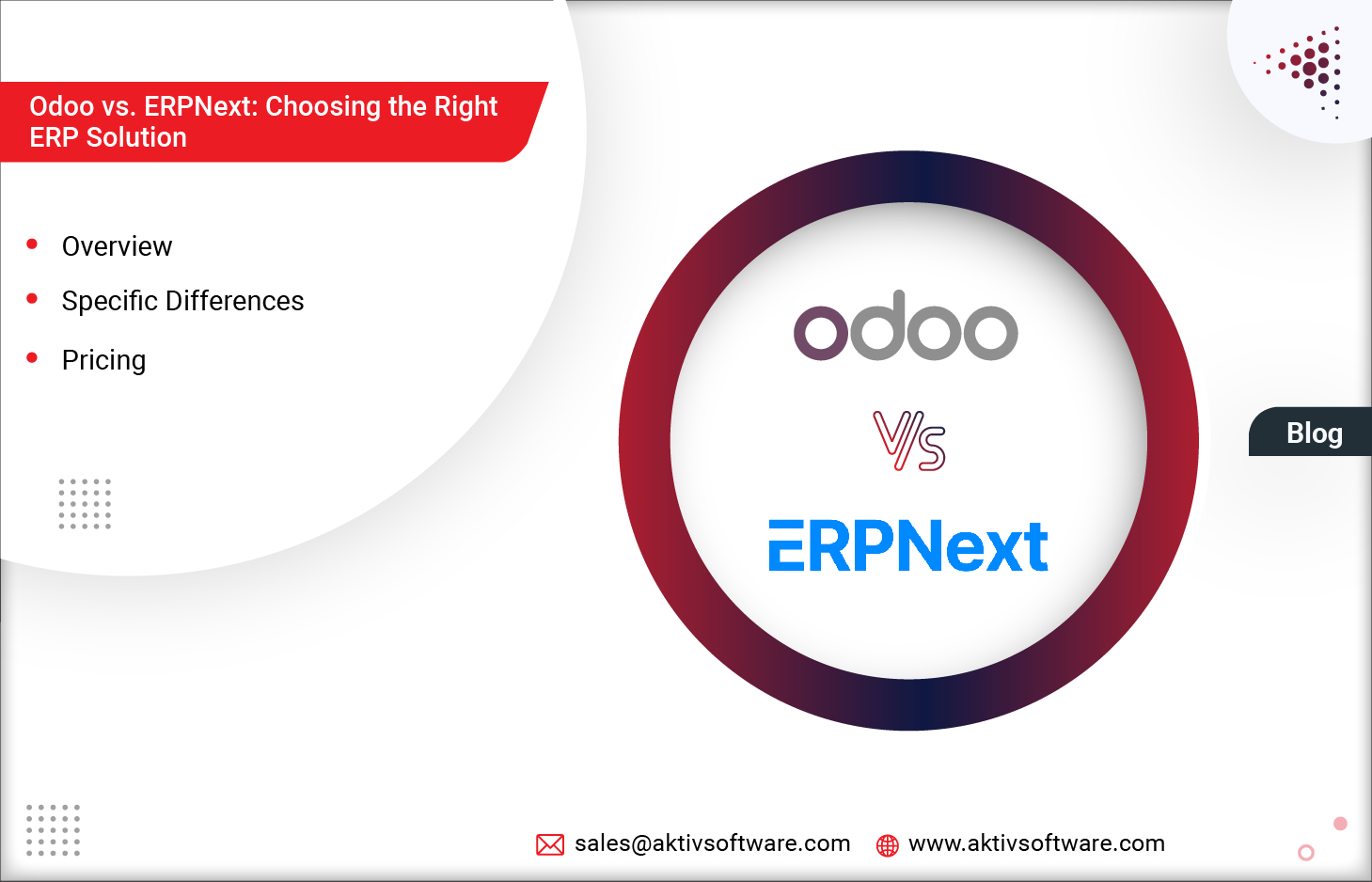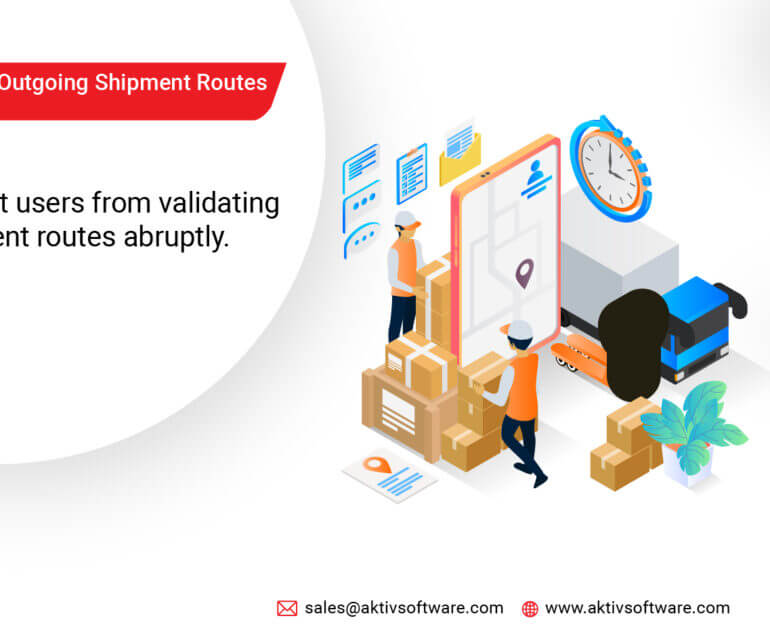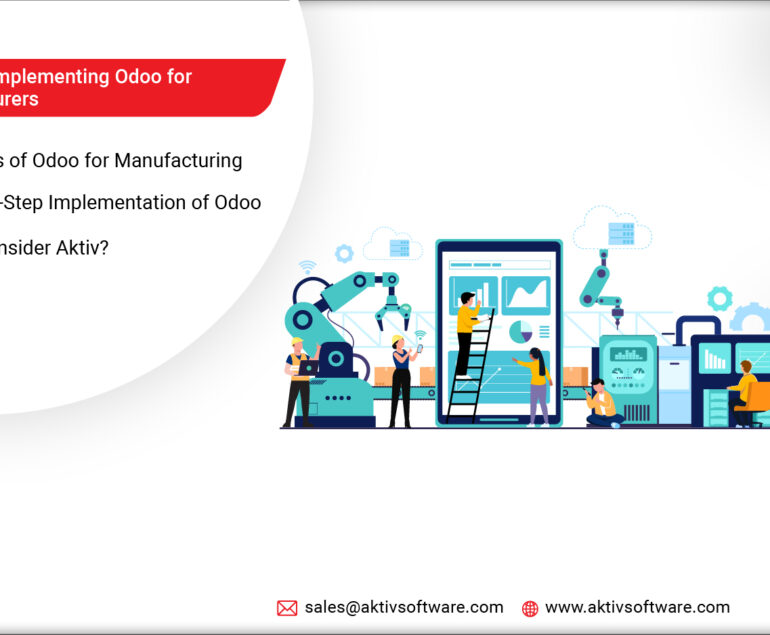In today’s highly competitive business landscape, organizations need efficient tools to streamline their operations and stay ahead.
Enterprise Resource Planning (ERP) software has become indispensable for this purpose. Odoo and ERPNext are two popular open-source ERP solutions catering to businesses’ diverse needs.
In this article, we’ll explore the key differences, functionality, commercial aspects, industry usage, and relevant statistics for both ERPNext vs Odoo.
Before diving into the comparison, let’s briefly understand what Odoo and ERPNext are:
Overview: Odoo & ERPNext
Formerly known as OpenERP, Odoo is an all-in-one suite of business applications designed to facilitate various aspects of business operations. Its modular approach allows users to customize and integrate the specific modules they require, making it suitable for businesses of all sizes.
ERPNext, on the other hand, is tailored for small and medium-sized enterprises (SMEs). It offers a comprehensive set of functionalities, covering areas such as accounting, inventory management, CRM, and more, with a focus on simplicity and ease of use.
Specific Differences: ERPNext vs Odoo
To make an informed decision, it’s crucial to highlight some specific differences between Odoo and ERPNext:
Technology Stack:
Odoo is built on Python and employs the PostgreSQL database, whereas ERPNext utilizes Python and the MariaDB database. The choice of technology stack may influence developers and database administrators.
Modularity:
Odoo is known for its modular structure, allowing businesses to select and implement only the modules they require. This provides flexibility but may increase complexity for larger installations.
ERPNext follows a more unified approach, offering a streamlined experience with essential modules.
Customization:
Odoo offers a higher degree of customization, making it suitable for businesses with unique needs. You can create custom apps and modify existing ones using Python.
ERPNext, while customizable to some extent, emphasizes simplicity and may not be as flexible in terms of deep customization.
Community and Support:
Odoo has a larger community and a vast ecosystem of developers, making it easier to find support, plugins, and resources.
ERPNext has a smaller community but is known for its dedicated user base and responsive support.
Functional and Commercial Comparison
Both Odoo and ERPNext cover fundamental ERP functions, including accounting, inventory management, sales, and purchase. However, Odoo’s extensive module library offers more diversity and can accommodate a broader range of business needs.
Statistics and Popularity
Let’s take a look at some key statistics to gauge the popularity of ERPNext vs Odoo.
Odoo:
- Over 8 million users worldwide.
- 30,000+ apps and modules available.
- A global presence with offices in multiple countries.
- Available in 23 languages.
- Widely adopted across various industries, including manufacturing, e-commerce, services, and retail.
ERPNext:
- Over 5,000+ GitHub stars.
- A growing user base, particularly among small and medium-sized businesses.
- Active community forums and a focus on user-driven development.
- Gaining traction in sectors like education, healthcare, and services.
Odoo vs ERPNext Pricing
Odoo offers a free community edition with limited features. The enterprise edition, which includes advanced features, support, and hosting, is subscription-based and comes with a cost that varies depending on the number of users, level of customization and several factors.
Factors affecting Odoo Implementation pricing.
ERPNext offers a free open-source version with basic features. It also provides a cloud-based version and a paid plan for businesses needing additional features and support.
Conclusion
Choosing between Odoo and ERPNext depends on your specific business needs and preferences.
Odoo offers a robust and highly customizable ERP solution with a vast ecosystem, making it suitable for larger enterprises and those with complex requirements.
On the other hand, ERPNext provides a simpler, user-friendly experience tailored for businesses seeking a straightforward ERP solution with core functionalities.
Before deciding, consider your budget, customization requirements, and the scale of your business operations.
Both ERPNext vs Odoo have their strengths and weaknesses, so it’s essential to evaluate them thoroughly to determine which ERP solution aligns best with your organizational goals.









